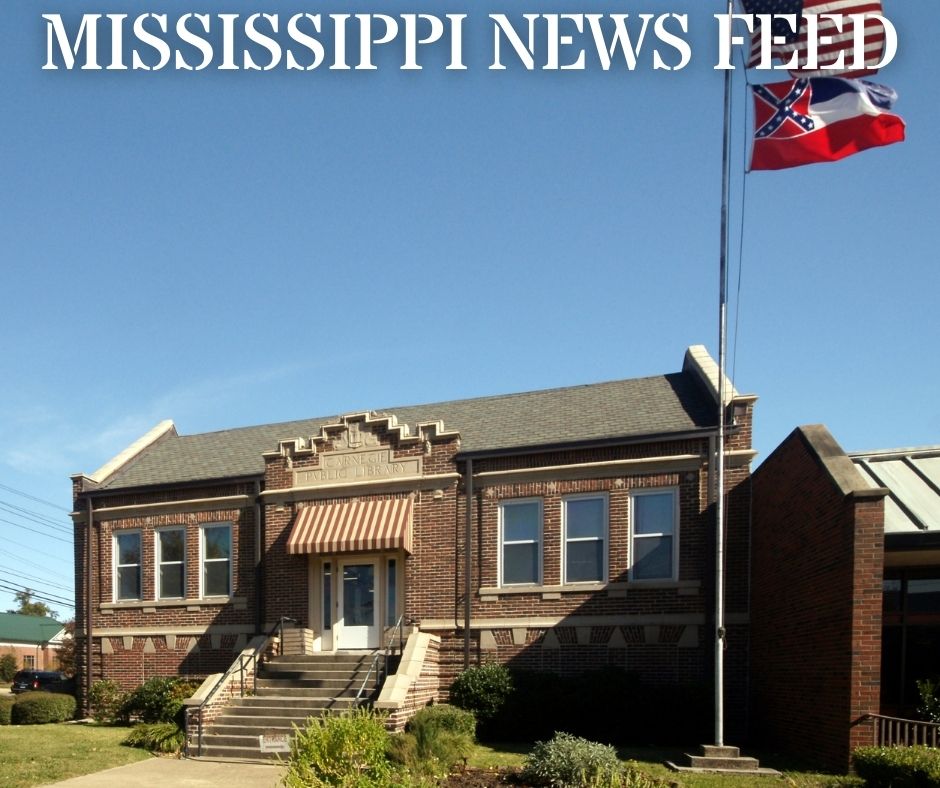Mississippi Today
Freedom Summer’s lasting impact: ‘They never forgot their mission’

Freedom Summer did more than change Mississippi. It changed America.
“So many of those volunteers went back to school with a new mission,” said Davis Houck, Florida State University's Fannie Lou Hamer professor of rhetorical studies. “They never forgot that mission.”
The seeds of the summer of 1964 changed voting in America. Changed political parties. Changed the nation.
That metamorphosis came not through some dramatic event captured on television, but through person-to-person relationships, said Dave Tell, the University of Kansas professor and author of “Remembering Emmett Till.” “It was a slower paced change, but in the end, it was a more powerful change.”
In 1964, civil rights leaders made public their plans to let student volunteers join them in working in the civil rights movement in Mississippi.
Upon hearing the news, Sam Bowers, imperial wizard for the White Knights of the Ku Klux Klan, told his fellow Klansmen to prepare for this “communist invasion.” “When the first waves of blacks hit our streets this summer,” they must avoid fighting them on the streets and attack them and their white collaborators at night, he said.
After darkness fell June 16, 1964, Klansmen heard that civil rights activists had gathered at Mount Zion Methodist Church in Neshoba County. They sped in their cars to the historically Black church and grabbed members, demanding to know where the activists were.

When members said they didn't know, Klansmen began to beat and pistol-whip members. Before Klansmen left, they torched the church.
“My mother had blood on her,” recalled member Jewel McDonald. “My brother had blood on him.”
Five days later, three young activists — James Chaney, Andrew Goodman and Michael Schwerner — came to investigate the Klan attack. Chaney and Schwerner had long been involved in the movement. Goodman had come as a Freedom Summer volunteer.
After spotting the trio, a deputy jailed them and released them that night into the hands of his fellow Klansmen, who killed the trio and buried their bodies 15 feet down in an earthen dam.
James Chaney never got to see his daughter, Angela Lewis, born 10 days before his death.
That's because he was on his way to Ohio to help train volunteers for Freedom Summer.
In the years that followed his killing, she didn't share the identity of her father, whose mother and family had been terrorized afterward.
During Black History Week in junior high, she followed other students into the library, where there were pictures on the wall of Martin Luther King Jr. and other civil rights activists. Then she saw it. A picture of her father.
“I never said a word,” she recalled. “I never told anyone.”
But each birthday carried a solemn reminder of the death of the father she never knew.
On the 40th anniversary of his death, she finally shared with others that her father was the civil rights icon, James Chaney.
“I love my dad and am so appreciative that he knew his purpose and assignment in life was to help others,” she said. “I am just like my dad.”
A year later in 2005, she wept as she watched a jury convict the Klan leader who helped orchestrate his killing, Edgar Ray Killen.
Young people need to be educated so that they can display the same passion and courage as her father's generation, she said. “Even with my dad, Andy and Mickey being killed, those students still got on the bus [for Freedom Summer in Mississippi].”

In June 1964, nearly 1,000 Freedom Summer volunteers, mostly white college students, arrived in Oxford, Ohio, for training.
They learned how to respond nonviolently to attacks from mobs and police. They learned how to run Freedom Schools to help educate children. They learned how to go door to door to encourage Black Mississippians to register to vote.
These white volunteers stayed with Black families, went to church with them and followed their house rules, Houck said. “It was a deeply immersive experience.”
Through that summer, volunteers came to understand what life was like for these Black families in Mississippi, he said. In turn, these families, who had never had white people under their roofs, now felt the burden of protecting them, he said.
Freedom Summer altered the trajectories of all of their lives, he said. “The movement changed them.”
Schwerner's widow, Rita Bender, said Freedom Summer's overarching lesson is that “if people organize themselves, they can collectively effect significant change in society.”
In that summer of 1964, the civil rights movement shone a light on Mississippi, which had done its best to keep Black voters from the polls after the Civil War ended, first with violence and then with laws and a new state constitution.
“There is no use to equivocate or lie about the matter,” future Gov. James K. Vardaman declared, “Mississippi's constitutional convention of 1890 was held for no other purpose than to eliminate the n—– from politics.”
Two years later, lawmakers purged all names from the voting rolls and barred Black voters from re-registering through poll taxes and constitutional quizzes.
The changes worked. Within a decade, the number of Black registered voters fell from more than 130,000 to less than 1,300.
Even after the passage of more than 70 years, that number remained miniscule. By 1964, less than 7% of Black Mississippians could vote.
That began to change with the passage of the Voting Rights Act of 1965, which Congress adopted in part because of the trio's murders and similar violence.
“Today, the hard-fought right to vote is under sustained attack,” Bender said. “Tragically, the gains of the past are not being utilized by many.”
Since 2023, at least 20 states, including Mississippi, have passed laws that make voting more difficult, according to the Brennan Center for Justice.
Under current Mississippi law, if voters fail to respond to a “confirmation notice” of their address, they are purged from the voting rolls.
In 2023, U.S. District Judge Henry T. Wingate blocked a law that he concluded might criminalize assistance to disabled Mississippians that might need help with absentee voting. This year, the state Legislature passed a measure to correct the law.
Mississippi also has the nation's strictest felony disenfranchisement law, barring more than 10% of the state's population from ever voting again because they've been convicted of certain felonies outlined in the constitution.
While some states, including Florida, have enabled those convicted of felonies to regain the right to vote, Mississippi has balked at such reform. That means more than 130,000 Black Mississippians, or 16% of the Black adult population, can't cast a ballot.
The Hill concluded that the second most difficult state in the nation to vote in was Mississippi.
Those in power “don't want ‘certain people' to vote,” said state Sen. John Horhn, a Democrat from Jackson. “It's a part of a bigger plan to maintain control, even as the white majority loses its numbers.”
Bender said a new movement — of the people, by the people and for the people — is needed to ensure that voting and other constitutional rights are protected.
As the nation diversifies, “there needs to be coalition building around extremely important common interests,” she said. “There is increasing resistance among some to this new reality as they feel threatened by these inevitable demographic changes.”
Goodman's brother, David, said that, for centuries, the notion was that authorities could do no wrong and must be obeyed, he said. “Back in King Henry's day, if you didn't accept the authority, you had your head chopped off.”
Those enslaved had to accept such authority or face possible death, he said. Afterward, they faced the horrors of Jim Crow, he said.

“My brother was murdered by people who viewed the imperial wizard as an authoritarian who should be listened to,” he said. “None of them were convicted of murder.”
Now, 60 years since Freedom Summer, “we're going back to the future,” he said. “We're dignifying the notion that an authoritarian can do no wrong.”
Throughout history, he said some of those in power have tried to deny or impede equal access to the ballot. For instance, student volunteers for the Andrew Goodman Foundation discovered a statewide ban on early in-person voting on Florida campuses.
“This ban of denying polling sites where young people lived, worked and studied had a negative impact on turnout,” Goodman said.
The foundation and the Florida League of Women Voters sued the state, and this in-person voting was restored.
On the 60th anniversary of the burning of Mount Zion Methodist Church, the church honored the slain trio in a service titled, “Rise From the Ashes.”
The Rev. Eddie Hinton, who serves as pastor for the church, said he sees people of different races coming together now.
“We have come a long way, but we still have a long way to go,” he said. “Black and white can work together.”
Mount Zion also honored McDonald and her family for their courage.
She told Mississippi Today that she has forgiven the Klansmen who attacked her family.
“Why should I hate someone?” she asked. “I don't believe in holding grudges. Why should I carry that when I can just forgive them and go on and live my life?”

Some people may think she's crazy for saying that, she said, “but I do believe in order for us to go to heaven, we need to love each other and, if we see someone who needs help, then help them out.”
She called on Mississippians to start healthy conversations across racial lines. “There's too much hatred,” she said. “We need to get rid of that hatred and love each other.”
This article first appeared on Mississippi Today and is republished here under a Creative Commons license.
Mississippi Today
On this day in 1957


JULY 6, 1957

Althea Gibson became the first African American to win the women's singles title at Wimbledon and became the top female tennis player in the world. Just six years earlier, she had become the first black player to compete at Wimbledon.
Born in South Carolina, she grew up in Harlem, where she loved table tennis. A local musician invited her to play tennis, and she became so talented that a year later, she won a local tournament sponsored by the American Tennis Association (formed by African Americans), later winning 12 ATA titles in just 13 years.
Despite her talent, much of the tennis world remained closed off to her. The breakthrough came in 1950 when tennis legend Alice Marble lambasted the sport for barring Gibson from the world's best tournaments. The tennis world opened its doors, and Gibson became a Top 10 player in the U.S.
In 1956, she won the French Open. After winning both the women's singles and doubles at Wimbledon in 1957, she was welcomed with a ticker tape parade in New York City. She went on to win 56 singles and doubles championships before turning pro in 1959.
Although she declared that she never considered herself a crusader, there is no question that she opened the doors for many others. She even tried golf, becoming the first black woman to compete on the pro tour.
After she retired, she was inducted in 1971 into the International Tennis Hall of Fame. She died in 2003 at the age of 77. In 2013, the U.S. Postal Service issued a stamp in her honor. Venus Williams said Gibson has been an inspiration to her and her sister, Serena.
This article first appeared on Mississippi Today and is republished here under a Creative Commons license.
Did you miss our previous article…
https://www.biloxinewsevents.com/?p=372977
Mississippi Today
As heat rises, inmates and staff swelter in Mississippi’s prisons
As of Friday, five of the six locations where Mississippi's prisons are located are under a National Weather Service heat advisory.
And the Mississippi Department of Corrections has no clear timeline as to when it will install air conditioning to bring relief to inmates and staff.
“We are continuing to explore our options to provide air conditioning where possible; however, there is no timetable for that installation at this time,” MDOC spokesperson Kate Head wrote in an email.
One woman incarcerated at the women's prison at the Central Mississippi Correctional Facility in Pearl said relief from the heat is hard to come by and the temperatures inside are worse than outside without any shade or trees. The woman asked not to be named for fear of retaliation.
“It's actually worse (in) here,” she said Tuesday. “The heat just hits you in the face.”
The heat index, also known as what temperature feels like on the body, takes into account humidity and air temperature. Friday's advisory was said to expect index temperatures up to 110.
According to the Centers for Disease Control and Prevention, people who are at an increased risk of heat-related illnesses include those without access to air conditioning, those over the age of 65 and people with chronic conditions – populations that include incarcerated people.
Last year was the incarcerated woman's first summer at the prison, and she witnessed people pass out or experience seizures because of the heat.
Head, the MDOC spokesperson, wrote in an email that the department is taking steps to mitigate the heat by providing incarcerated people with water, ice and fans.

This is similar to what has been done in previous years, but some incarcerated people have said that distribution of ice isn't always regular or enough to support hundreds of people and that fans move hot air around. MDOC did not respond to these concerns Friday.
Air conditioning installation has been completed at the women's prison at CMCF in the church, school and dining areas, the incarcerated woman said. Several weeks ago it was completed in her housing zone, she said, but the AC there has not been turned on.
Tuesday evening, the prison superintendent visited the building where the incarcerated woman lives and told residents the air conditioning would not be turned on for the foreseeable future because it requires a part that is on backorder, the woman said.
The woman has also seen how three emotional support dogs trained by seminary students are moved to air conditioned areas and provided pools of water to stay cool. She doesn't understand how the animals get access to the relief but she and the other women don't.

“We get the short end of the stick on everything,” she said, in reference to how the men at CMCF already have AC and the dogs in the women's prison get access to it.
MDOC did not respond to questions about the air conditioning and the dogs' access to it.
Last year as air conditioning was installed at three-fourths of the Mississippi State Penitentiary at Parchman, Commissioner Burl Cain estimated that by sometime in 2025, AC would be coming Parchman's Unit 29, South Mississippi Correctional Institute in Leakesville and other facilities, so long as funding was available to support those upgrades.
“It just takes a good while to get it all done,” he said in an April 2023 interview with Missisisppi Today. “That's just the way the funding is.”
At Parchman, the heat index was above 130 degrees – within the extreme danger category where a person's risk of heat-related illness is likely – for 25 of the past 72 hours, according to the National Weather Service records.
On four separate instances Wednesday afternoon, the heat index reached 185 at Parchman, according to weather data.
Pictures from Parchman's Unit 29, which doesn't have air conditioning, shows how men have secured 8-inch fans purchased from the commissary to the bars of their cells and placed their mattress on the floor beneath the fan, which some have told advocates is how they get relief from the heat.
The majority of Parchman has had air conditioning since last summer, but Unit 29 is part of the group of prisons that are expected to get AC sometime in the future.
At all prisons, an 8-inch fan is available to buy from the commissary for $29.95, which is among one of the most expensive on the prison's commissary list compiled by The Appeal.
Even if an incarcerated person has a job, Mississippi prison industry jobs can pay between 20 cents and $1.30 an hour, which falls within an estimated national average calculated by the Prison Policy Initiative. The group also estimated regular prison jobs nationwide have an estimated range of 14 cents and 63 cents an hour.
Privately operated Eastern Mississippi Correctional Facility has AC including in its housing units, but family members told advocates that since the end of May, the air conditioning has not been functional.
The maximum daily temperatures in Meridian, where the prison is located, have been above 90 degrees since the end of May, according to the National Weather Service.
Meridian is also under a heat advisory, and within the past three days, the highest heat index was 107 degrees – 95 degrees at 75% humidity, which is in the danger category for heat-related illnesses.
Management and Training Corp. spokesperson Emily Lawhead said technicians have diagnosed problems with air conditioning units and will install new units when they arrive.
“We're working hard to get all AC units back online as soon as possible,” she wrote in an email.
In the meantime, Lawson said cold water and fans are available, and Gatorade is provided to staff and incarcerated people for them to stay hydrated. Swamp coolers are cooling the air in areas where AC units are waiting to be repaired, she said Friday.
Heat in prison is a national issue that Families Against Mandatory Minimums, which represents incarcerated people and their families, and One Voice United, a group representing corrections staff, have teamed up to address.
The Safer Prisons, Safer Communities campaign is highlighting a nationwide crisis through overcrowding, understaffing and deteriorating conditions that make prisons unconducive to rehabilitation and create poor conditions for incarcerated people, prison staff, families and communities.
Andy Potter, executive director of One Voice United and a former Michigan corrections officer, recognizes prison infrastructure can be old and it can be expensive to install air conditioning.
But he said it's not enough for incarcerated people and the corrections staff to rely on fans, water bottles and Gatorade to stay cool. The incarcerated and staff do not have the freedom or ability to seek relief in a similar way as those not in a prison system can do, Potter said.
Daniel Landsman, vice president of policy for FAMM, said air conditioning can help decrease incidents of violence and fatalities, which research has found increases with heat.
“Heat is just going to make all the things we are experiencing in our prison system worse,” he said.
This article first appeared on Mississippi Today and is republished here under a Creative Commons license.
Mississippi Today
On this day in 1827


JULY 5, 1827

A day after those enslaved were freed in the state of New York, 4,000 Black Americans marched along Broadway through downtown streets with a grand marshal carrying a drawn sword. They arrived at the African Zion Church, where abolitionist leader William Hamilton said, “This day we stand redeemed from a bitter thralldom.”
Celebrations took place as far away as Boston and Philadelphia. In New York's capital, Nathaniel Paul, pastor of the First African Baptist Society, declared, “We look forward … (to) when this foul stain will be entirely erased, and this, the worst of evils, will be forever done away … God who has made of one blood all nations of men, and who is said to be no respecter of persons, has so decreed; I therefore have no hesitation in declaring this sacred place, that not only throughout the United States of America, but throughout every part of the habitable world where slavery exists, it will be abolished.”
Among those freed by this act? Sojourner Truth, who was born into slavery and had escaped to freedom just a year earlier. The Fifth of July is still recognized and celebrated in New York City.
This article first appeared on Mississippi Today and is republished here under a Creative Commons license.
Did you miss our previous article…
https://www.biloxinewsevents.com/?p=372793
-
Mississippi News1 day ago
Two inmates escape from Mississippi detention center
-
Local News6 days ago
Hurricane Beryl strengthens into a Category 4 storm as it nears the southeast Caribbean
-
Our Mississippi Home6 days ago
Recipes to Get You Ready for July 4th
-
Local News6 days ago
Mississippi sets new laws on Medicaid during pregnancy, school funding, inheritance and alcohol
-
Mississippi News3 days ago
Case hits close to home in Columbus
-
The Conversation5 days ago
How was popcorn discovered? An archaeologist on its likely appeal for people in the Americas millennia ago
-
Kaiser Health News3 days ago
KFF Health News’ ‘What the Health?’: SCOTUS Term Wraps With a Bang
-
Mississippi Today5 days ago
Podcast: State Democratic Chair Taylor remains committed to Biden


































